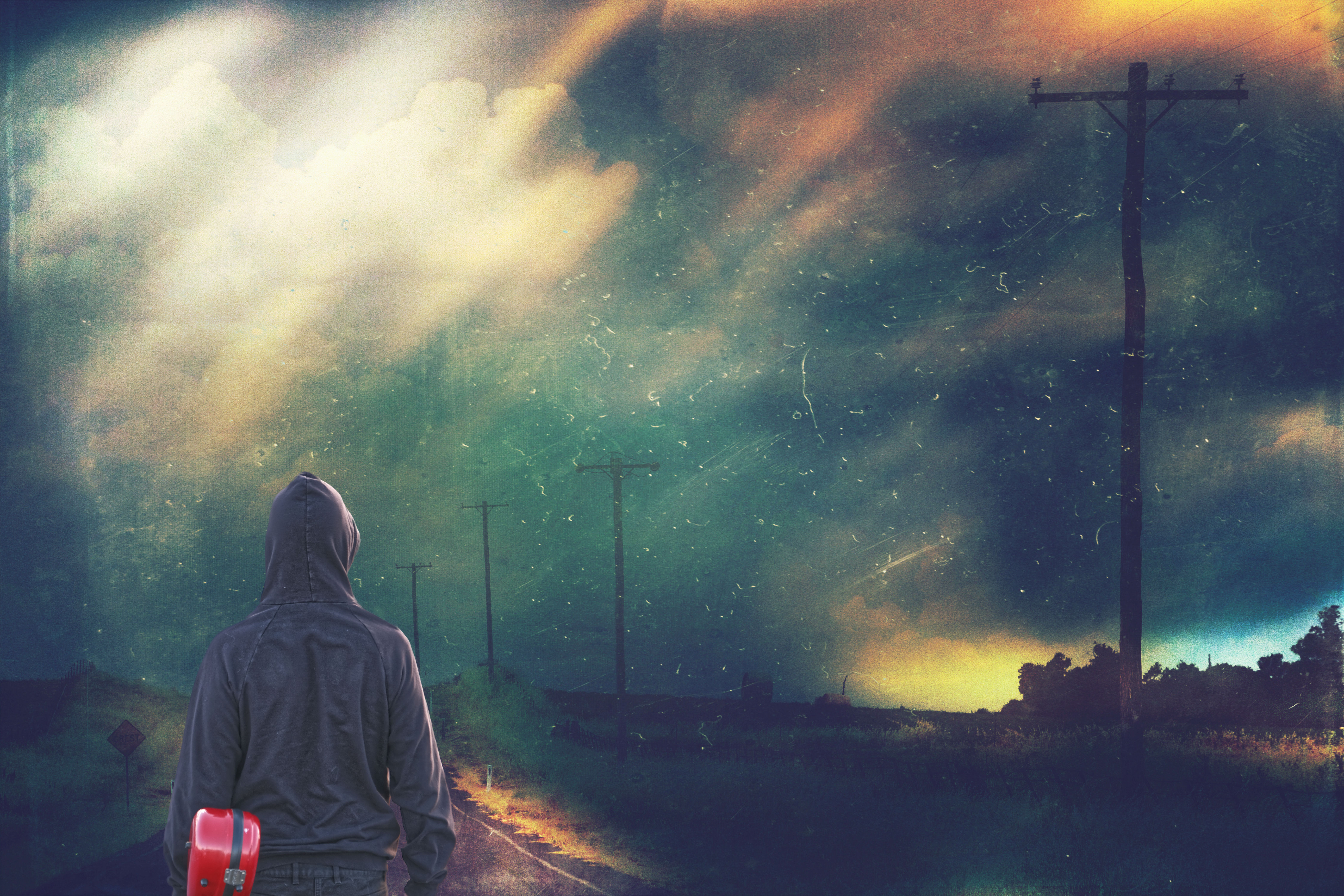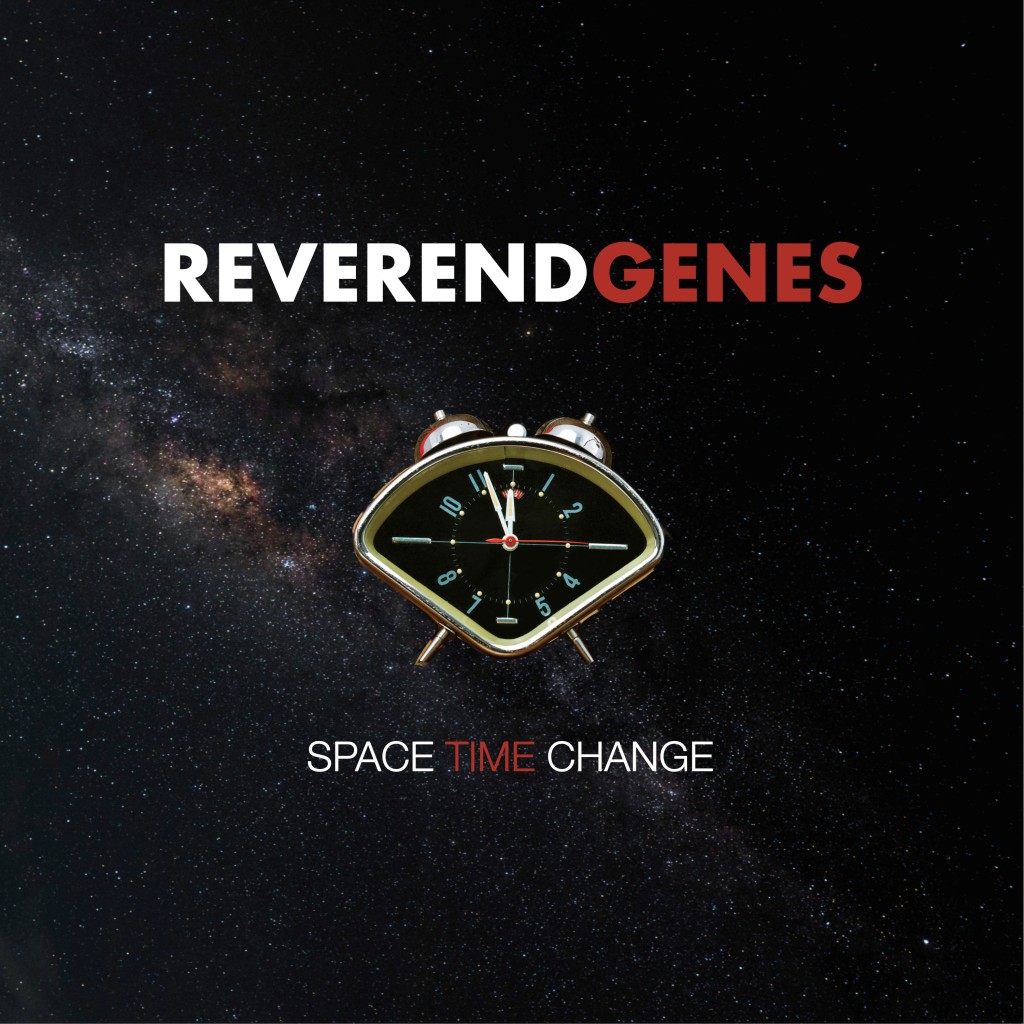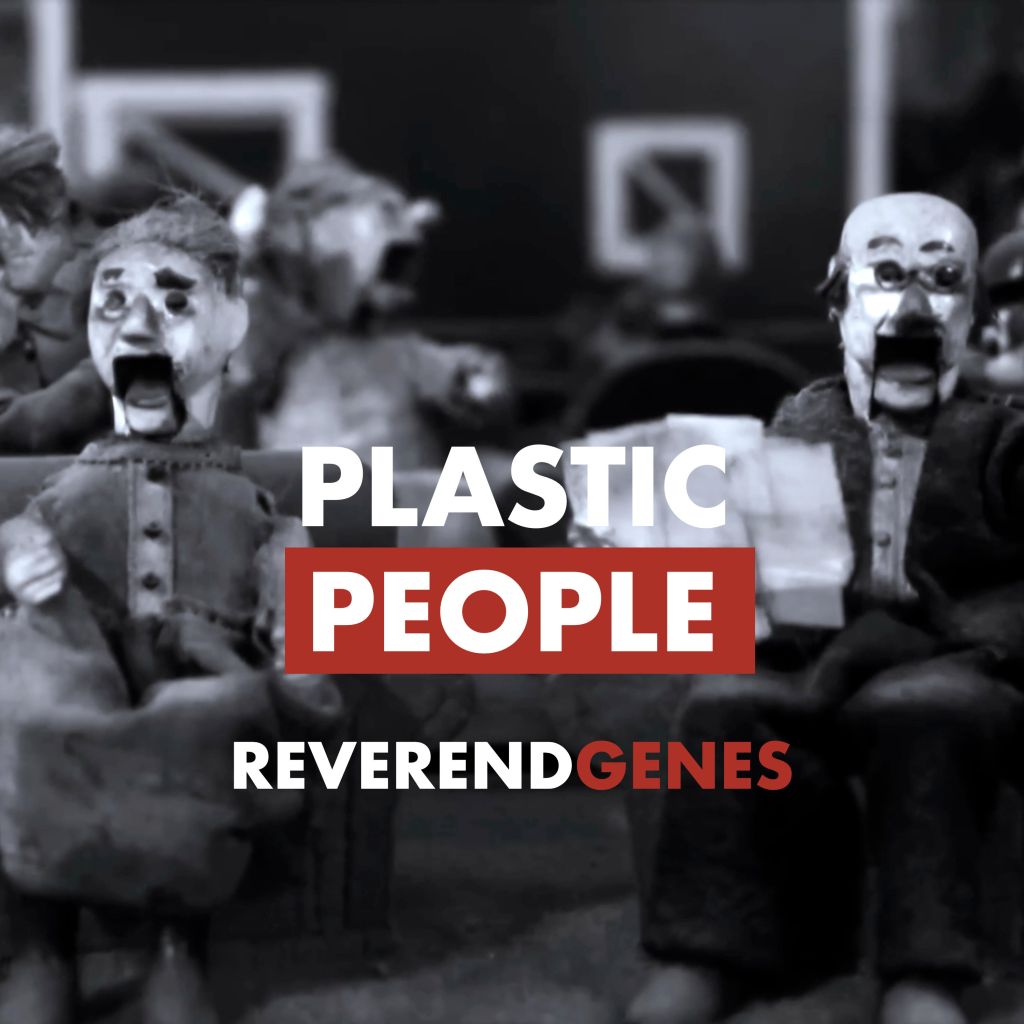Hailing from Newcastle, Australia, Reverend Genes is about to release the first single from their forthcoming EP, Time, the second in a series, comprising Space, Time, and Changes. Written and recorded over two years, the series revolves around the idea that everything takes place in the context of space, time, and change. Touching on themes that include sustainability, movement, dreams, and relationships, the series also raises some interesting questions—which we’ll get to in a minute! For now, the important thing to know about their sound is that it’s drawn from the music of Australian pubs and clubs and is, in turn, influenced by the music that emerged from the UK and the USA in the latter half of the 20th century.
How long have you been making music, and how did you get your start?
Making music started at high school. One of the school’s English teachers played guitar and I put up my hand when he asked if anyone else played. The teacher was organising a student rock band and I found myself in that band on rhythm guitar. Our teacher suggested playing Bowie’s “Suffragette City” and U2’s “Sunday Bloody Sunday.” After school I played guitar in bands and around Newcastle pubs and clubs while studying computers at uni.
Do you ever get the opportunity to play live?
Not so much at the moment, other than jamming with mates. After finishing uni I went back again to study music. I played two or three gigs a week on nylon string guitar in hotels and restaurants. That paid for my course.
These types of gigs are a bit like being a solo guitarist in the front bar of a pub, but the music is instrumental and the strings are nylon. I still play guitar music from Spain and South America along with Celtic folk music tradition as much as possible.
Unlike the UK, Europe and the USA, here in Australia it is a long way between potential gigs, and audiences are also limited. Also many pubs and clubs have shifted away from live music. Most now rely on a mix of bar, poker machine and food sales to make money.
Essentially, distance and reduced live opportunities is why Reverend Genes focuses on song writing and recording.
What’s your approach to recording?
Songs usually start as an idea that comes from playing nylon or steel string guitar. This is usually a riff or a harmonic progression. Either way the best ideas tend to hang around and are either expanded in the case of a riff, or decomposed back into potential melodic ideas in the case of a harmonic progression.
There’s a super handy little 4 track audio app that’s on my tablet that can export audio tracks to email. It’s great for capturing ideas on the fly.
When there is time to record I drag and drop audio from the 4 track app into recording software. Drums and percussion tend to be a mix of live triggers and programming and vocals are tracked last. Bass, guitar and keyboard parts are recorded in the normal way using microphones and preamps.
I’ve always liked melodic bass lines like the line from Joy Division’s Love Will Tear Us Apart and Mike Mills’ lines in REM. Also music that generates texture and harmony from overlapping melodic lines. The aim is to leverage similar ideas to build out the Reverend Genes style.
I’m curious about how the Space Time Changes series came about. Specifically, why a series of EPs rather than an album?
Well I had a bunch of finished songs that I wanted to release, and it seemed pretty clear that the vast majority of releases are now singles.
But I wanted to wanted to try something a bit different and had read about waterfall releases. Here, a series of singles are released, with each release adding to the previous one. So the first release is a single, the second release is a new single plus the first single bundled in, the third single builds on that again, and so on.
The idea is that each release is cumulative, and hopefully provides a way to keep a series of tracks in play without needing to jump straight to an EP or album release.
At the end of the waterfall process there is usually a larger release, be it an EP or an album. For Reverend Genes the first EP was the five track EP called Space that launched on 21 November 2023. This year the second 5 track EP Time is the focus. The final EP in the series Change is currently planned for early in 2025.
Your press materials mention that you wrote and recorded the songs in the series over a two-year period. Does that mean they’re all “in the can,” as it were, and ready to be released? If so, I envy your patience. I know I’d be tempted to release everything at once! What’s the idea behind spreading the release dates out over time?
The short answer is yes, the songs are “in the can”, and the idea behind spreading the releases out using a waterfall approach was touched on in the last answer.
To add a bit more, fifteen songs was a bit too much for an album and not enough for a double album.
Spreading the releases out also allows for time to write and record new material.
Still I also agree that there is a temptation to release everything at once. There is also a tendency to feel as though the latest songs are better than finished ones. And, this can also feed back into the temptation to release faster, or maybe to revisit older tracks in some way.
One of the questions your press materials asks is “How is it that our species neglects their own kind and nature, while throughout history low-fluencers have consistently leveraged followers to drive their own objectives?” Can you spell the question out a little more? What are some ways in which members of our species neglect their own kind and nature? Also, who are the low-influencers you mention?
Everyone has seen the commercial world’s ads that aim to capitalise on human fascination with wealth and beauty. Cryptocurrency ads are a recent wealth example, and fashion ads are perpetual. Even the most mundane, everyday products try to leverage beauty to snag a sale.
There are also other types of ads sanctioned by well known individuals throughout time. These types of ads are not necessarily seen or heard via the media, but they are nonetheless very well understood. For example, authoritarian acts of violence, repression, and persecution.
Low-fluencers refers to the people behind ads that only generate personal advantage, at the expense of everyone else, and our collective natural environment.
That’s a lot to consider! How do you work all of those ideas into your lyrics?
Australia’s Midnight Oil have been an influence when it comes to lyric writing. Most Australians understand the issues around Indigenous disadvantage that underpin the lyrics to Beds Are Burning. Also the anti-nuclear lyrics and stance across their entire career. There are also bands from the USA punk and hardcore scenes that address social issues like Bad Religion and Fugazi. The social critique in early U2 songs also comes to mind.
As for Reverend Genes’ lyrics, sometimes the meaning is clear and other times not so. For example, the song You And I from the Space EP could be understood as a song about someone looking at photos and reflecting on a relationship that went bad. Whereas it was really written about our obsession with taking photos, posting photos and looking at photos.
So the lyrics to You And I, and other songs across the initial EP series may not necessarily have a straight forward message. For Reverend Genes the song as a whole has to work. If this means that the lyrics are not as direct as maybe they could be. Then that is ok.
Plastic People is probably Reverend Genes’ best example to date of a song that has a clear message. That message is that we all impact the planet and ourselves through plastic pollution.
Going full circle, keeping words simple helps when working ideas into lyrics. Trying to write a melody that can effectively support a word like environmentalism is just not easy. Simple, common words definitely work best.
Your forthcoming single is called “Plastic People.” How does it fit into the larger context of the Space Time Changes series?
Plastic People is a call for change, and the three EPs are a collection of songs about sustainability. They question whether we have the space and time to change in a positive way as a species.
We are all capable of self-initiated change, and we all change every day as we learn and age. We also change our environment. But it is hard to understand why we choose to accept the damage and extinction that we cause as we change our environment.
Plastic is also an example of something that is unsustainable. Most new plastic is made from finite fossil fuel sources, and its manufacturing contributes to habitat destruction and global warming. So Plastic People sits well in the EP series in this context. It is about the plastic that we make, our plastic pollution, and in turn, the plastic that pollutes our bodies.
Perhaps worse than visible plastic pollution is the fact that plastic breaks down to form tiny particles known as microplastics. This stuff is everywhere, and there are also microplastics that are made, and deliberately added many cosmetic products including lipsticks and toothpastes.
It would be great to go back to a time when there was no plastic in the water we drink, no plastic in the food that we eat, and no plastic in our blood.
We are plastic people.
But do we care, and can we all find enough space and time in our lives to change this?
I understand that all of the income from the Reverend Genes project goes to the World Wildlife Fund. Why is that organization important to you?
To be honest there are many not for profit organisations trying to make the world a better place. The WWF was picked because it is international and focuses on conserving animals and habitat.
It is strange that many people don’t take time to consider that humans are also animals, and that like all the other critters here, we also rely on the same natural habitat to support life.
In a similar way to the WWF’s planet-wide focus, Reverend Genes was conceived as an inclusive project. The name itself means to respect all genes, or in other words all life. And, the WWF was the closest organisation working towards conserving fauna and flora worldwide.
While the streaming income so far has not broken records, it would be brilliant if that were to change. Without naming any names, at least two major streaming platforms do not pay any royalty income back to the artists who populate their platforms with content. Another recently decided to redistribute all income that used to go to smaller artists, like Reverend Genes, back to the biggest artists.
Do these big artists need the extra cash? Maybe.
But that extra money would make a bigger difference to organisations that work tirelessly against the tide to conserve our natural environment.
And, to borrow another question from your press materials, do you think we have the space and time to change?
Well, I certainly hope we can change in ways that lead to a sustainable world.
A world that includes healthy natural environments and wildlife, and also minimises destruction and pollution would be a happier place. There is nowhere else we can go.
Anyone that would choose to burn their own house for fuel is either desperate, not thinking clearly, or is not as wise as they probably would like to think they are.
Thanks for taking the time to answer my questions!
Marc thanks for taking the time to ask Reverend Genes a few questions and to share the answers! All the best.



You must be logged in to post a comment.